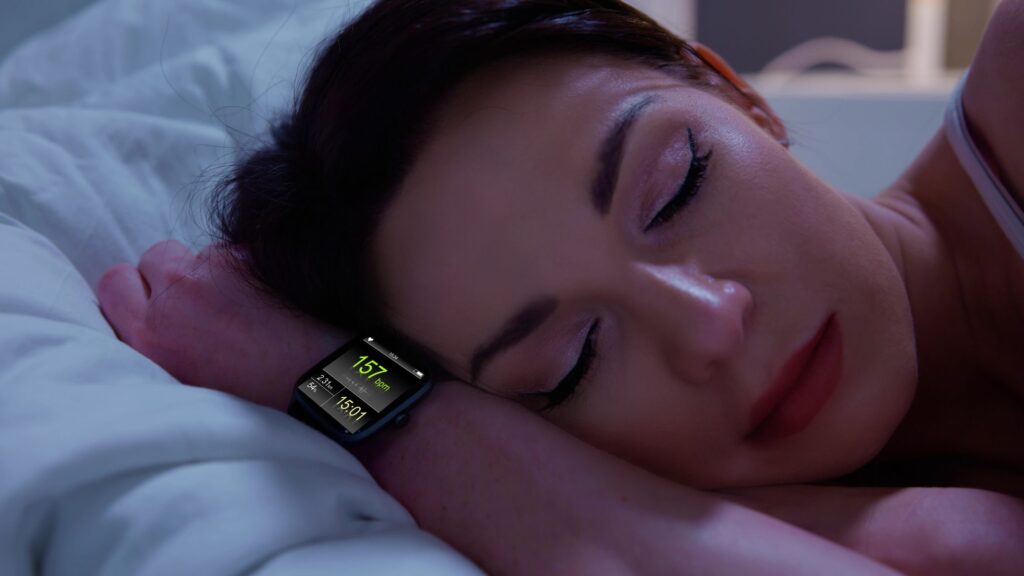Smartwatches Track Calories Burned
Introduction
Smartwatches have revolutionized the way we track our fitness and health goals, including monitoring the calories we burn during various activities. This post delves into how smartwatches track calories burned, the accuracy of these measurements, factors that influence calorie tracking, and tips for maximizing the benefits of this feature.
Table of Contents
Smartwatches track calories burned, providing users with valuable insights into their daily activity levels and overall health. These wearable devices have become increasingly popular among fitness enthusiasts and those looking to monitor their energy expenditure for better weight management and fitness goals.
What This Post Covers
In this post, we will explore:
- An overview of how smartwatches track calories burned.
- The technology and sensors used in smartwatches for calorie tracking.
- Factors that affect the accuracy of calorie burn measurements.
- Benefits of using smartwatches to monitor calorie expenditure.
- Tips for optimizing calorie tracking with your smartwatch.
- Common misconceptions and FAQs about smartwatch calorie tracking.
What Are Smartwatches?
Smartwatches are wearable devices that combine the functionality of traditional watches with advanced features such as fitness tracking, heart rate monitoring, GPS navigation, and smartphone connectivity. They use sensors and algorithms to gather data about your activities and provide insights into your health and fitness metrics.

How Do Smartwatches Track Calories Burned?
Smartwatches track calories burned using a combination of sensors and algorithms that measure various physical activities. They use accelerometers to detect movement, heart rate monitors to gauge intensity, and sometimes GPS to track distance and pace. By integrating this data, smartwatches can estimate the number of calories burned throughout the day, whether during exercise or routine activities. This information helps users make informed decisions about their diet and exercise routines, supporting their overall health and fitness objectives.
Smartwatches track calories burned using a combination of sensors and algorithms:
- Heart Rate Monitoring: Many smartwatches have optical heart rate sensors that measure your heart rate continuously or at regular intervals. They use this data, along with your age, gender, weight, and activity intensity, to estimate calorie expenditure.
- Activity Recognition: Smartwatches use built-in accelerometers and gyroscopes to detect movement patterns and identify different activities such as walking, running, cycling, swimming, and more. Each activity is associated with a specific calorie burn rate based on metabolic equivalents (METs) or other calculations.
- GPS Tracking: Some smartwatches have GPS capabilities to track your outdoor activities more accurately, considering factors like terrain, speed, and elevation, which can impact calorie burn.
Why Smartwatch Calorie Tracking Is Important
Tracking calories burned with a smartwatch offers several benefits:
- Awareness and Accountability: It helps you become more aware of your activity levels and encourages accountability towards your fitness goals.
- Goal Setting: Smartwatches allow you to set calorie burn goals, providing motivation to stay active and achieve targets.
- Workout Optimization: By monitoring calorie expenditure during workouts, you can adjust intensity levels, duration, and activity choices for optimal results.
- Overall Health Monitoring: Calorie tracking is part of a broader picture of health monitoring, including sleep tracking, heart rate variability, stress levels, and more.
Factors Affecting Calorie Tracking Accuracy
Several factors can influence the accuracy of calorie burn measurements:
- Individual Variability: Factors like age, gender, weight, fitness level, and genetics can affect how your body burns calories.
- Activity Type and Intensity: The type of activity (e.g., cardio, strength training) and its intensity level impact calorie expenditure. Smartwatches may have different algorithms for different activities.
- Heart Rate Accuracy: The accuracy of heart rate measurements affects calorie calculations. Factors like skin contact, sensor placement, and motion artifacts can influence heart rate sensor accuracy.
- Environmental Conditions: Temperature, humidity, altitude, and terrain can affect how your body responds to exercise and influence calorie burn rates.
- User Input and Settings: Providing accurate personal information (e.g., age, weight, height) and selecting the correct activity type or mode on your smartwatch can improve calorie tracking accuracy.
Tips for Optimizing Calorie Tracking With Your Smartwatch
To get the most out of calorie tracking on your smartwatch, consider these tips:
- Ensure Proper Fit: Wear your smartwatch snugly on your wrist to improve heart rate sensor accuracy.
- Update Firmware: Keep your smartwatch firmware and accompanying apps updated to access the latest features and improvements.
- Calibrate Settings: Enter accurate personal information and calibrate settings like stride length for walking and running activities.
- Use GPS When Applicable: Enable GPS tracking for outdoor activities to enhance distance and calorie calculations.
- Compare Data: Compare calorie burn data from your smartwatch with other sources (e.g., fitness equipment, heart rate chest straps) for validation and consistency.

Conclusion
Smartwatches provide a convenient and insightful way to track calories burned during various activities, contributing to a holistic approach to fitness and wellness. Understanding how smartwatches track calories, factors influencing accuracy, and optimization tips can help you make the most of this valuable feature in achieving your health and fitness goals.
Common Misconceptions and FAQs
Are Smartwatch Calorie Estimates Accurate?
Smartwatch calorie estimates are generally accurate for moderate-intensity activities but may vary in accuracy for high-intensity workouts or strength training.
Can Smartwatches Track Calories Burned During Weightlifting?
Smartwatches may struggle to accurately track calorie burn during weightlifting due to the nature of the activity and the reliance on heart rate data.
Do All Smartwatches Have Calorie Tracking?
Most modern smartwatches equipped with fitness tracking features offer calorie tracking capabilities, but the accuracy and depth of tracking may vary.

My name is Oje and I’m obsessed with finding the latest tech gear to help people track progress and solve problems more efficiently. I spend countless hours researching and testing innovative apps, wearables, and devices for fitness, health, productivity, and more.
